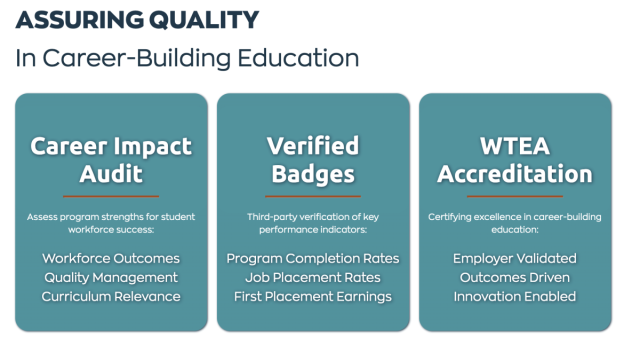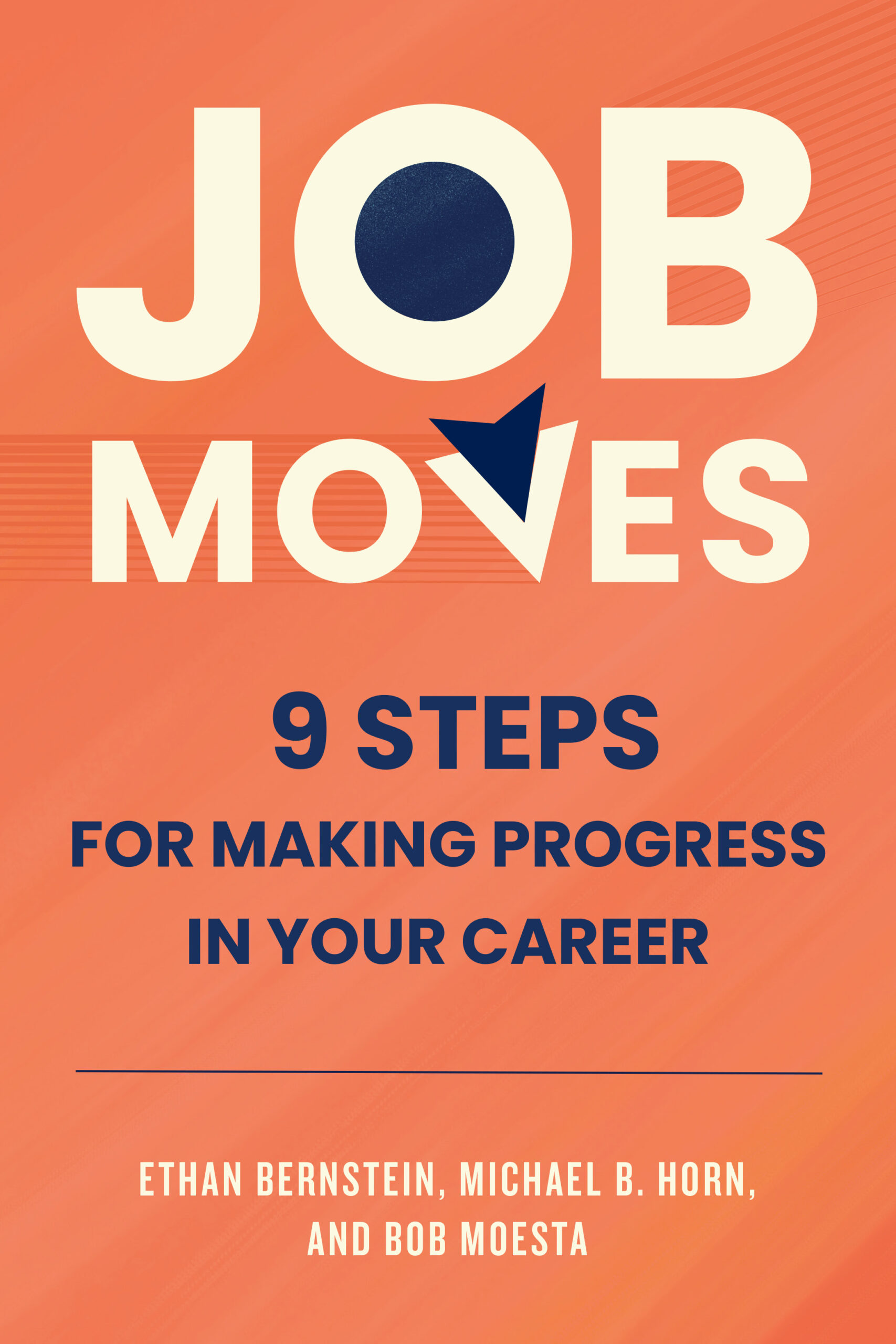
Judging Institutions Based on Employment Outcomes
By Suzanne Smalley
Michael Horn is a veteran in this terrain; more than a decade ago, he developed what he called the quality value index to measure postsecondary institutions. He later founded a nonprofit—since acquired by Jobs for the Future—focused on education quality outcomes and how to standardize them. The standards touch on learning completion, salary growth, placement and learner satisfaction to measure quality for different types of programs.
“We built it in a way that it can be super workforce oriented in short-term programs, but also in a way that had enough breathability in the standards that a liberal arts college or fine arts colleges could find a way to use it to express the value they believe they impart for students,” Horn said.
Horn said the WTEA effort reminds him of other initiatives, which he described as voluntary associations where institutions want to distinguish themselves by having gold standards for outcomes.
He said accreditation is the federal government’s proxy for quality today, but there are weaknesses to the existing accreditation system. Horn said he hopes efforts like WTEA’s help shift the conversation to be more outcomes based.
“For federal funding, nine out of 10 of the indicators are based on inputs,” Horn said. “There are not agreed-upon standards, and what are we looking for for outcomes. And as a result, accreditation does not really stand for the seal of quality approval that learners perhaps think that it does, so I think efforts like this are important to change that narrative and just shift us to hydroplane.”

0 comments